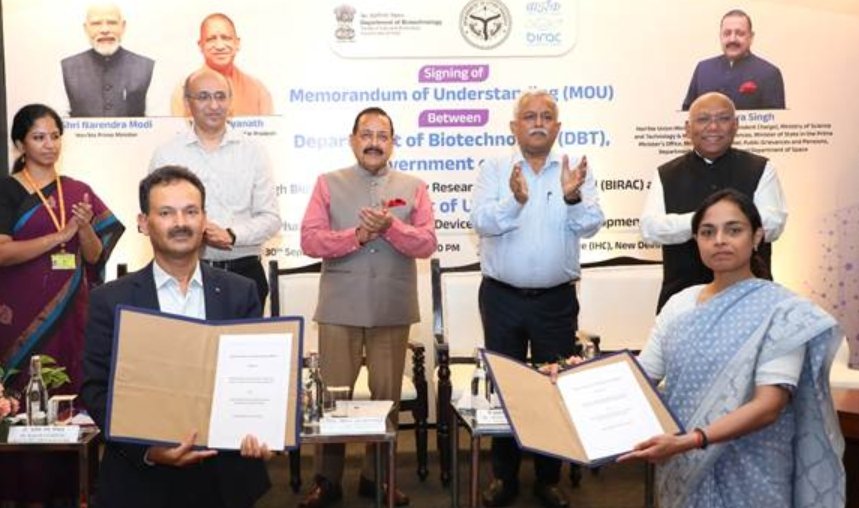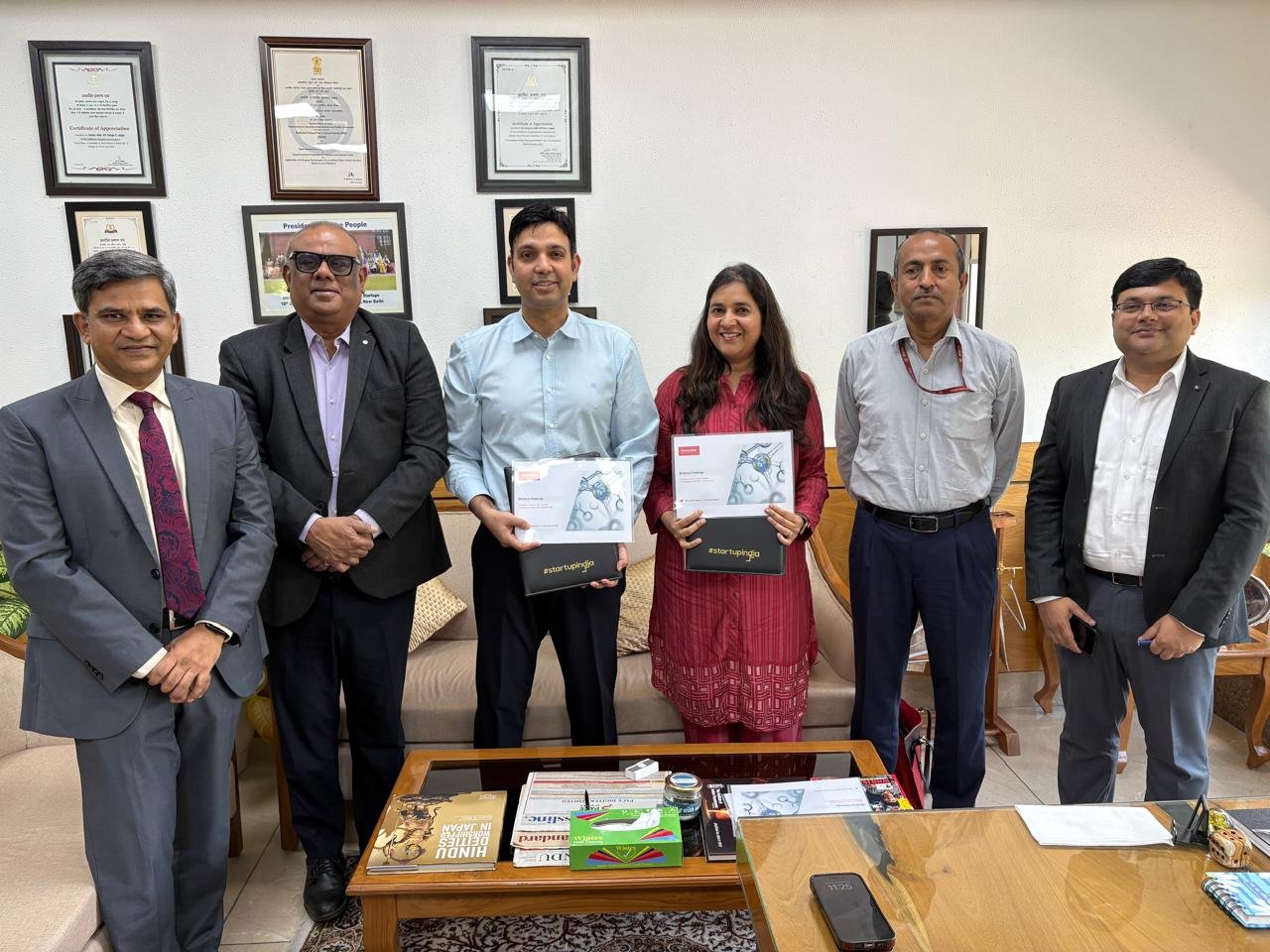Start-ups: Busting dumb myths
July 17, 2015 | Friday | Features
Start-ups: Busting dumb myths
Investors, venture capitalists, financial institutions, incubators and everybody who are a part of the start-up scene have believed, and still believe many myths surrounding start-ups.
BioSpectrum's Raj Gunashekar spoke to some of the leading Life Sciences start-ups in the country to do a reality check, and bust long-held dumb myths about Life Sciences start-ups. Here we go:
Myth #1: Biotech start-ups struggle with fundraising
Venture capitalist fundraising is difficult irrespective of the sector. "With a good product and a great team backing it, you become an attractive incubation target. There are a number of 'healthcare only' funds made available for life science start-ups," says Dr Mallik Sundaram, co-founder of Mitra Biotech.
Investors shy away from Life Sciences start-ups because of the widespread notion that investments in this field are risky with long gestation periods.
"But in reality, a key contributor to the stunted growth of life sciences industry in India is lack of funds to attract great talent and technologies required to build great products. If we have the kind of money they are putting into mushrooming e-commerce and dot com ventures with no uniqueness, life sciences companies can develop impactful products and go to market with significantly shorter turnaround times. We must start believing in the potential of this industry and start pitching with large visionary ideas and gain the confidence of the investor community," points Mr Tony Jose, CEO, Clevergene Biocorp, a two-year-old start-up in Bangalore.
While Life Sciences start-ups do require more investment, than typical software-driven companies that can get started in a garage, it is possible to build lean, and capital efficient companies in this space.
Mr Sam Santhosh, CEO & chairman, Medgenome, a start-up dealing with genomics-based diagnostic solutions stresses, "Start-ups in life sciences require a lot of capital to get started. In some instances, scaling up life sciences companies can be easier than other sectors, like e-commerce, as profitability is easier to attain upon achieving scientific milestones."
Another start-up entrepreneur, Dr Saleem Mohammed, director, Xcode Life Sciences, thinks that Life Sciences start-ups requires large capital investment for infrastructures.
"I think historically life sciences companies have required huge capital investment because of machinery, manpower, and labs among others. But these days you can easily outsource projects to any third party labs for your projects," he expresses.
However, Ms Smitha Murthy, founder & CEO, Credora Life Sciences, bolsters the point that it is indeed really difficult to raise funds for research in start-ups.
Myth #2: Start-ups need larger investments, offer insignificant ROIs, and longer gestation periods
"This cannot be generalized saying it takes a longer time to see returns in this sector," says Dr Mallik. "It depends on the extent of innovation, market acceptability and novelty of products and services. A novel concept will definitely take longer to sell, eventually bringing windfall. However, innovations in existing products see quicker returns."
Founders of Bangalore-based, Leucine Rich Bio, Mr Kumar Sankaran and Mr Prabhath say that, "For Life Sciences start-ups, it is true that you need heavy initial capital. But there are ways to handle it. For example, you don't have to have a fully-fledged lab at the very beginning itself. You can slowly grow better and better."
Dr Raja Mugasimangalam, founder and chairman of India's first agri-genomics start-up, QTLomics, argues, "There is no capitalism without capital. But a life science start-up with generous capital is bound to fail as optimization of the R&D cost or production happens much later, when it is too late. By smartly outsourcing and rightly negotiating, the capital investments can be reduced to a great extent"
The beliefs that long-term investments and longer incubation periods are not true anymore.
"We live in an era where development and roll-out of apps or companies happen within 2 to 3 months. There are areas of life sciences where the incubation period is not long especially in the bioinformatics or BioIT space," Dr Saleem reveals.
Noida-based start-up CromDx's co-founder & CEO, Mr Sanjay Bhardwaj, comments, "It is a myth that life sciences start-ups requires huge funding. One can actually break their business plans in stages. It is crucial to find applications for the immediate markets. Building competencies and preparing for the market explosion is important."
Investors usually believe that R&D is expensive. "Get your products and services launched and keep on improving it," advises Mr Sanjay.
Myth #3: Big ideas equal big returns
Most of the 'novel ideas' are not first-in-class products. "They were developed based on millions of pages of literature, and a number of precursors. Apart from sound technical knowledge, right know-how of the market and consumer behavior can go miles in designing the right strategy for a start-up," advises Dr Mallik.
Dr Sangeeta Naik, director of Bangalore-based start-up, Cleanergis Biosciences says, "It is generally perceived that in biotech it is easy to start-off and get multiple projects compared to other sectors. The reality is it is not that easy to achieve targets in the biotech industry."
Also, it is a common belief that Indian Life Sciences start-ups do not work on cutting-edge technologies.
"This is a common perception and is not necessarily true. We are working on market leading efforts in genomics using the latest sequencing platforms, advanced bioinformatics and big data analytics. Curadev is a great example under the immunotherapies category," Mr Sam adds.
Myth #4: Starting with the biggest market
Entrepreneurs advise that it is significant to look for niche segments to test the waters, and then replicate the process for rapid scale up.
"The market with most potential may always not be the right place to start with. It all again depends on the kind of products or services offered, and its acceptability level at the market," Dr Mallik held.
When entering a particular market, it is believed that products or services are priced higher. Mr Sanjay advises, "Do a price versus volume analysis and the answer is obvious."
Myth #5: Life Sciences start-ups are associated only with medicines
Life Sciences is a broad umbrella. "It comprises of agriculture, biofuels, synthetic biology among others which also fall under the life sciences domain," comments Dr Saleem.
Dr Ezhil Subbian, CEO, String Bio, remarks, "Usually people assume that all life sciences companies are pharma ventures."
Co-founder of genomics-based start-up, Bionivid Technology, Mr Hitesh Goswami voices, "A popular myth in the life sciences start-up scene is that you have to be a scientist to set up a start-up. This is absolutely not true."










